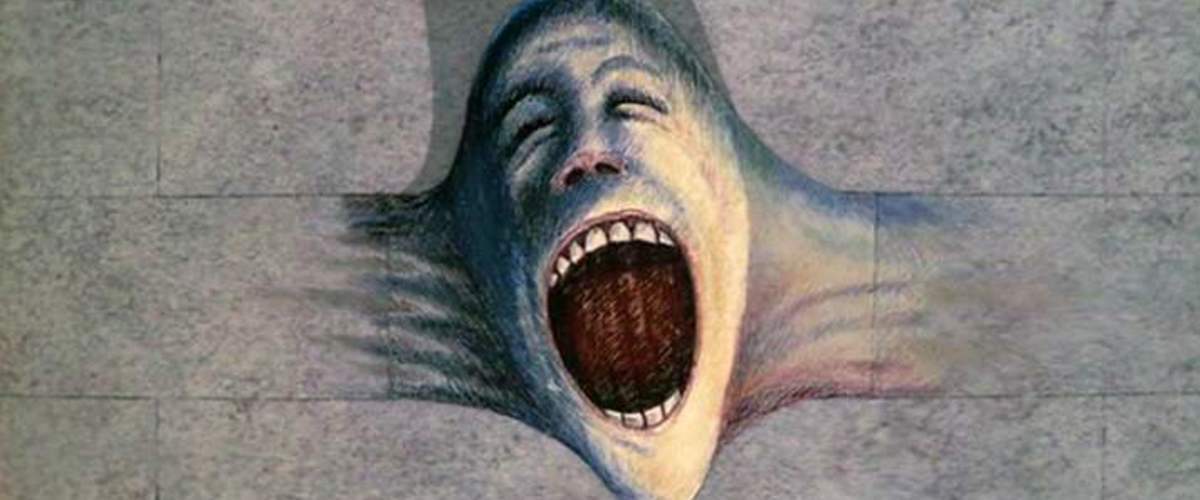
November 30th, 1979: Pink Floyd puts out their magnum opus: The Wall, a 26-track double record mostly curated by Roger Waters, the band’s bass player.
Sure, the other members are present throughout the record, but The Wall is Waters’ passion project, exploring his childhood and the isolation he felt during the troubled years of the band.
Waters, who looked at The Wall as his masterpiece, wanted to make the album the band’s most ambitious work yet. This included a tour where the band would play the record in its entirety while building up a physical wall between them and the audience ,as well as the 1982 movie, Pink Floyd – The Wall.
On the surface, The Wall plays like a visual album; the songs run in mostly the same order, and the basic story is there. To look at an album like The Wall on just a surface level would be an absolute injustice, though, so the movie more or less makes Waters’ intentions a bit clearer.

The Wall tells the simple story of a musician named Pink who descends himself into a world of isolation. Through isolation comes madness, and through madness comes loss of oneself. The parallels between Pink and Waters himself are obvious (almost intentionally in fact), and make for a truly personal story. Waters’ exploration into loneliness leads him into digging up his own past, whether it be his abusive childhood or his failure at falling in love.
While the overall tone is personal, Waters packs The Wall with themes of the time and fears for the future: an Orwellian world led by a Big Brother-like government, the threat of possible extinction, anti-war messages, etc. Waters ultimately ties his anxieties about the world and his own insecurities together, as if they’re one and the same, making for a deeper exploration at what makes one man alone. This is the brilliance of the The Wall.
To showcase both the personal journey for Pink and Waters’ own anxieties, director Alan Parker calls upon the use of both a live action narrative and animated segments created by political artist Gerald Scarfe. While the live action segments deal with Pink’s exploration into the pieces of his past that add up to his wall of isolation, the animated moments go deep into Pink’s brain and the existentialism Pink constantly explores. The images are iconic and breathtaking: the hammers marching in order, the screaming face coming out of the wall, the flowers, etc.

That’s not to say the live action sections should be overlooked. Pink’s story of self-isolation easily carries the emotional weight of the film. Bob Geldof stars as Pink, a role that adds up to a mostly silent performance, though he has a lot more to do later in the film as Pink accepts the position of a dictator, leading the audience into a full scale riot during “In The Flesh.”
Even with the lack of voice in Geldof, Alan Parker makes up for it in absolutely gorgeous direction: the sweeping riot shots, the intensity in the party sequences, the tracking shots through Pink’s childhood home. The direction partners with the animated segments so well that the transitions from one to the other never feel jarring.
All of the themes and beauty of the visuals are tied together by the music of The Wall. None of the album is lost in translation from record to screen; if anything, the movie is a perfect companion, adding context to the themes present in the album and creating new ones along the way. It is almost preferable to listen to the album and watch the movie back to back, just to immerse yourself in the world Waters is throwing you into.

As the movie comes to a close and the wall that has been built from the beginning starts to crumble, you start to realize just how important the story of The Wall is in many ways, and not only the obvious wall metaphor is present.
The Wall explores the build up of fascism and intense nationalism that can be seen today in our own country and some people’s fear of letting other people in, whether physically or mentally. In reality, we can trace a lot of people’s fears of others into their own deeply rooted insecurities. It’s an important topic that’s not only examined in a global sense, but in Waters himself.
If only we all had the ability to be as introspective.
Pink Floyd: The Wall
1982
dir. Alan Parker
95 min.
Screens Saturday, 7/13, 11:59pm @ Somerville Theatre – 35mm!

